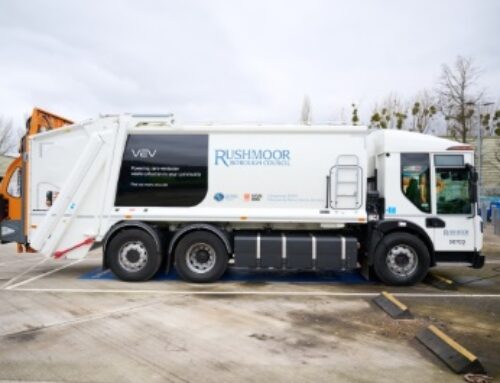Haulier costs could soar due to off-payroll work rules
 Recruitment specialist Driver Require has released an in-depth report for hauliers discussing the impact of forthcoming changes to so-called IR35 rules, designed to ensure that workers providing services through intermediaries pay appropriate tax levels.
Recruitment specialist Driver Require has released an in-depth report for hauliers discussing the impact of forthcoming changes to so-called IR35 rules, designed to ensure that workers providing services through intermediaries pay appropriate tax levels.
Changes due for rollout in April 2020 may force increases of up to 30 per cent in agency charge rates, the recruitment agency has warned, potentially impacting hauliers’ profit margins significantly.
The report, entitled IR35 & its Potential Impact on the Temporary LGV Driving Sector, looks at the operational and economic consequences of the introduction of IR35 to the private sector, which it says will force agency drivers currently operating as limited company contractors to move to PAYE.
Ensuring continuity of net pay for these drivers – as well as maintaining agency margins and paying tax and national insurance contributions – will effectively raise agency labour costs by as much as 25 per cent, says Driver Require. In turn, this will raise the cost of temporary drivers to the end client by around 20 per cent.
This is a tax on agency users that goes entirely to the government, emphasised the firm; neither drivers nor agencies will benefit from the increased charges.
Its report examines the impact of the IR35 changes on agency volumes and charge rates across the contract spectrum, and suggests that the additional cost of agency workers is likely to encourage hauliers with large-volume agency contractors to take standard operations back in-house – while still using agencies to cover seasonal and variable demands.
“The increase in margins and shift from large volume, lower-variable contracts to lower volume, high-variability contracts means that most agency contract charge rates will rise by around 20 per cent, and large volume contract charge rates will rise by up to 30 per cent,” added Kieran Smith, CEO of Driver Require.
The recruitment specialist suggests that the changes will be unavoidable for the majority of haulage operators, highlighting the statutory guidance of the senior traffic commissioner, which says: “HMRC is concerned that haulage operators are wrongly treating workers as self-employed or are hiring workers through their own companies in ways that are not compliant with tax laws and therefore fair competition amongst other operators.
“Their position is that in road haulage it is rare for someone to be genuinely self-employed unless they are an owner-driver.”
Transport managers who illicitly engage limited company agency drivers risk disciplinary action by the traffic commissioner and could potentially lose their operator licence, Driver Require suggests.
Kieran Smith added that it would not be easy for either operators or agencies to absorb the additional costs.
“We are concerned that hauliers will be tempted to unlawfully continue using limited company contractors, supplied by disreputable agencies who are willing to take the financial risk,” he said.
“This will undermine ethical operators and agencies.
“What we’re calling for in our report is an enforcement of the legislation and for the government to clamp down hard on disreputable players. It’s only if this happens, and if agencies and their clients can work closely with each other to agree on new charge rates, that we’ll be able to quickly stabilise the market so that normal competitive operations can be re-established to the ultimate benefit of all parties.”
Readers can download a copy of the white paper at the Driver Require website.











